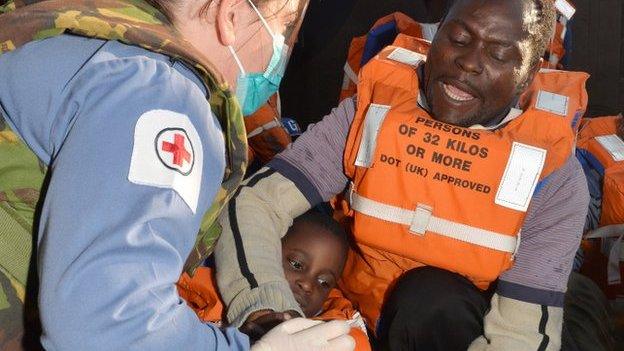David Cameron urges EU countries to follow UK's lead on refugees
- Published
David Cameron: "[We are] increasing the amount of money we are giving to educate Syrian children"
Prime Minister David Cameron has called on other EU countries to follow Britain's lead by funding refugee camps in countries neighbouring Syria.
Speaking during a visit to Lebanon and Jordan, he said a failure to boost spending for such camps would mean many more people would try to reach Europe.
Mr Cameron said the UK had given £1bn in aid and urged "others to step up".
It comes a week after the UK said it would resettle 20,000 Syrian refugees over the next five years.
Britain has been under pressure to take in more people as Europe struggles to deal with a huge influx of refugees - most fleeing conflict in Syria but large numbers also fleeing violence and poverty in Afghanistan, Eritrea and Kosovo.
The prime minister's visit comes as:
More EU countries said they would impose border checks to deal with the influx of migrants
EU interior ministers held emergency talks in Brussels on the migrant crisis
Mr Cameron appointed Richard Harrington as minister for Syrian refugees to ensure arrivals are given a "warm welcome"
The Dalai Lama, on a nine-day visit to Britain, described the UK's pledge to take in more refugees as "wonderful"
But former foreign secretary David Miliband, now CEO of the International Rescue Committee, said the UK needed to do more
Mr Cameron, on a visit to the Za'atri camp in Jordan, which houses 90,000 Syrians, said there was a "direct connection" between shortfalls in aid for camps in Lebanon, Jordan and Turkey and the refugee crisis in Europe.
He said the UK had given "more than 10 times" what other countries had contributed, adding: "I would encourage others to step up to the plate and spend and invest in the way Britain has done."

Analysis
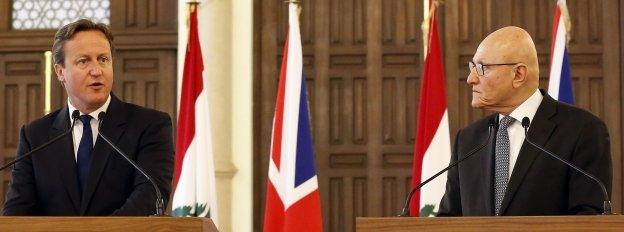
James Landale, BBC deputy political editor
It is David Cameron's first visit to Lebanon and he is here with a clear aim: to address the criticism that Britain is not doing enough to tackle Europe's refugee crisis.
So he walked around a refugee camp in the Bekaa valley just one mile from the Syrian border to meet just some of the families benefitting from British aid.
He also visited a school at heart of Beirut supported by British cash where Syrian and Lebanese study alongside each other.
The PM's argument is that this is the help Syrian refugees need rather than any encouragement to risk the dangerous journey to Europe.
So to a nation now familiar with television pictures of Syrian refugees fleeing across Europe, Mr Cameron wants to remind people of where the vast majority are, namely in Lebanon, Turkey, Jordan and Syria itself.

European ministers, meeting in Brussels, have been discussing plans to redistribute over 100,000 people across 23 EU states.
Under EU law the UK, Ireland and Denmark are exempt from the quota plan.
Home Secretary Theresa May again stressed the UK would not take part, instead calling for action to set up registration centres in Europe and centres in "transit" countries which would distinguish between asylum seekers and migrants.
'Suffered torture'
Mr Cameron met Lebanon's Prime Minister Tammam Salam and Jordan's King Abdullah, and some of the families who would be resettled in the UK.
He said those being resettled would be selected by the UN on the basis of need.
"We will take the most vulnerable, we will take disabled children, we will take women who have been raped, we will take men who have suffered torture," he added.
Mr Cameron said people he spoke to at the camps wanted to go home to a peaceful Syria, not to Europe.
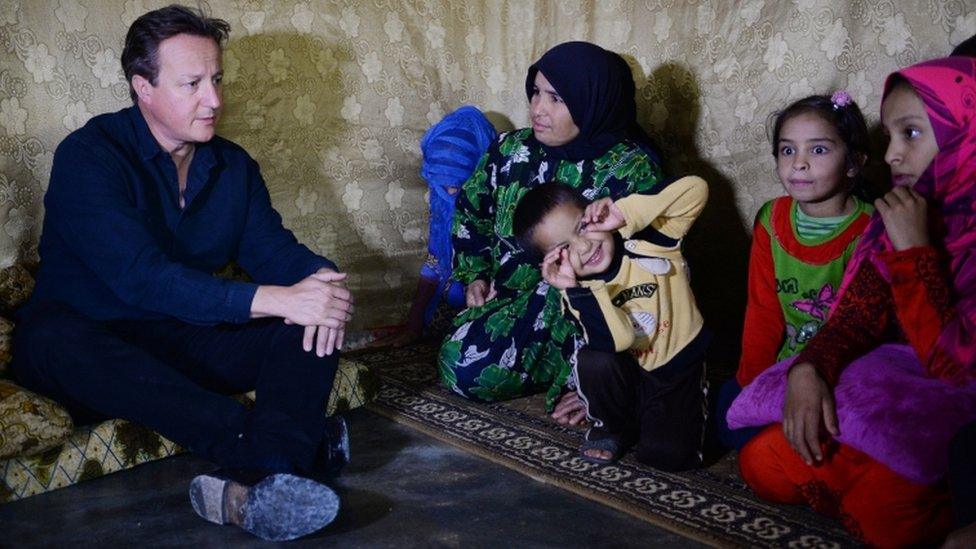
David Cameron spoke to Syrian refugees in a camp in Lebanon's Bekaa Valley
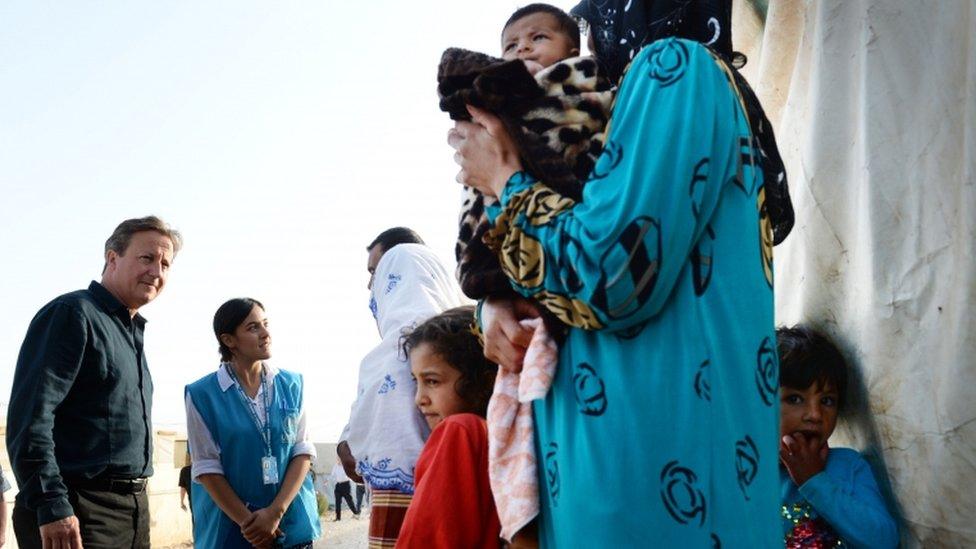
The camp - one of 1,500 in the area - houses 525 Syrian refugees in 90 tents
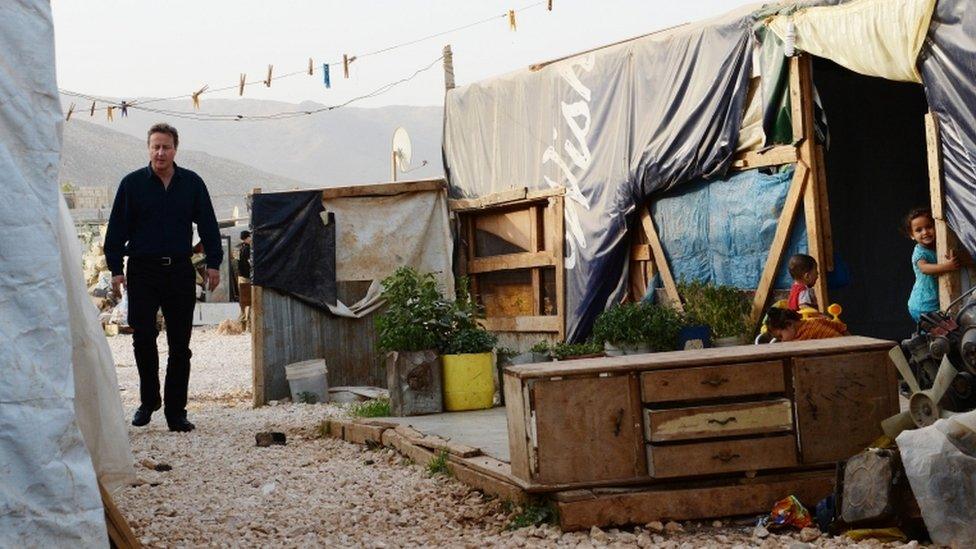
The camp is operated by the UN's refugee agency
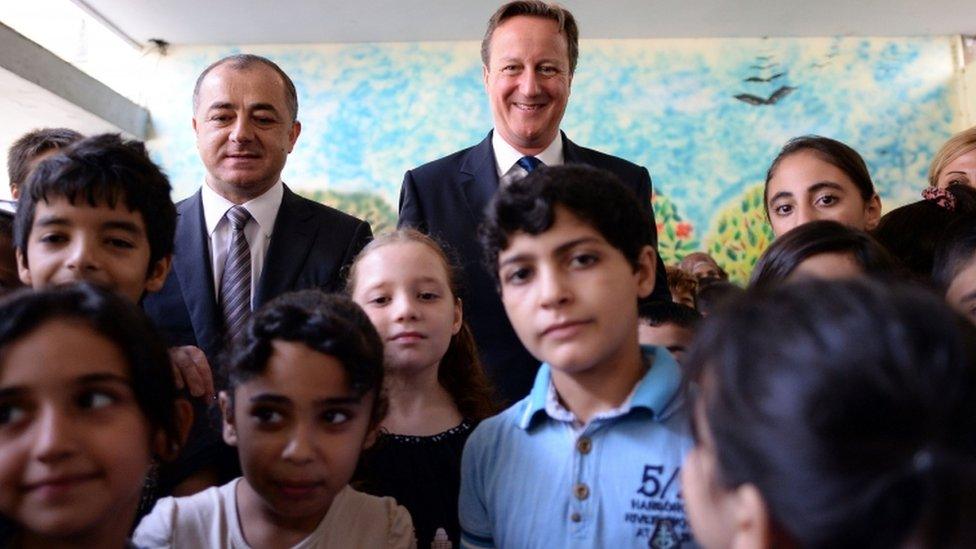
The prime minister also visited a school in the Lebanese capital Beirut, which has received UK aid money to cope with the influx of Syrian pupils
Lebanon is to receive £29m of the £100m in aid pledged by Mr Cameron to help those displaced by the Syria conflict.
It will pay for food packages for thousands, clean water, blankets, stoves, mattresses, counselling and play areas for children.
Mr Cameron announced the UK was doubling support for Lebanon's state schools to £20m a year for the next three years, to help them cope with the influx of Syrian children.
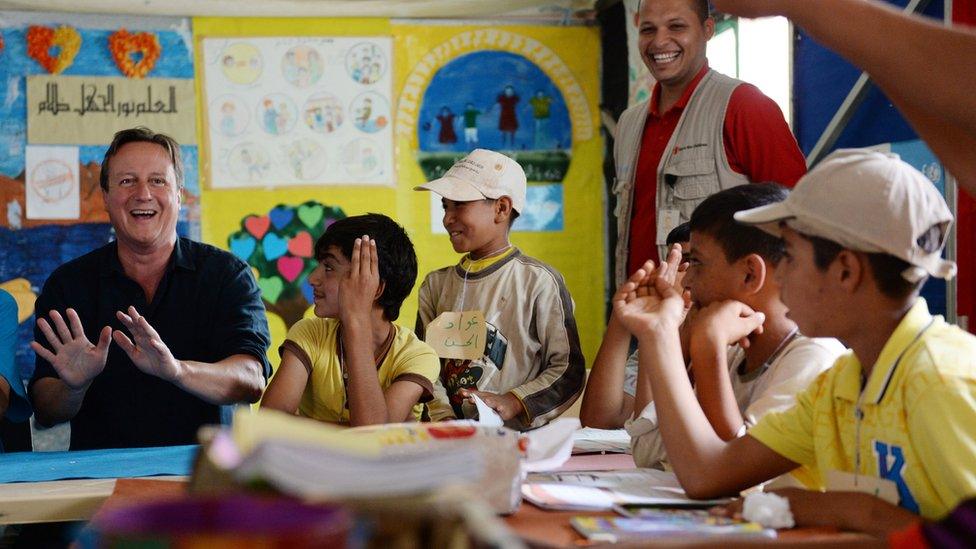
The Za'atri camp near Amman in Jordan is vast, housing 90,000 Syrian refugees
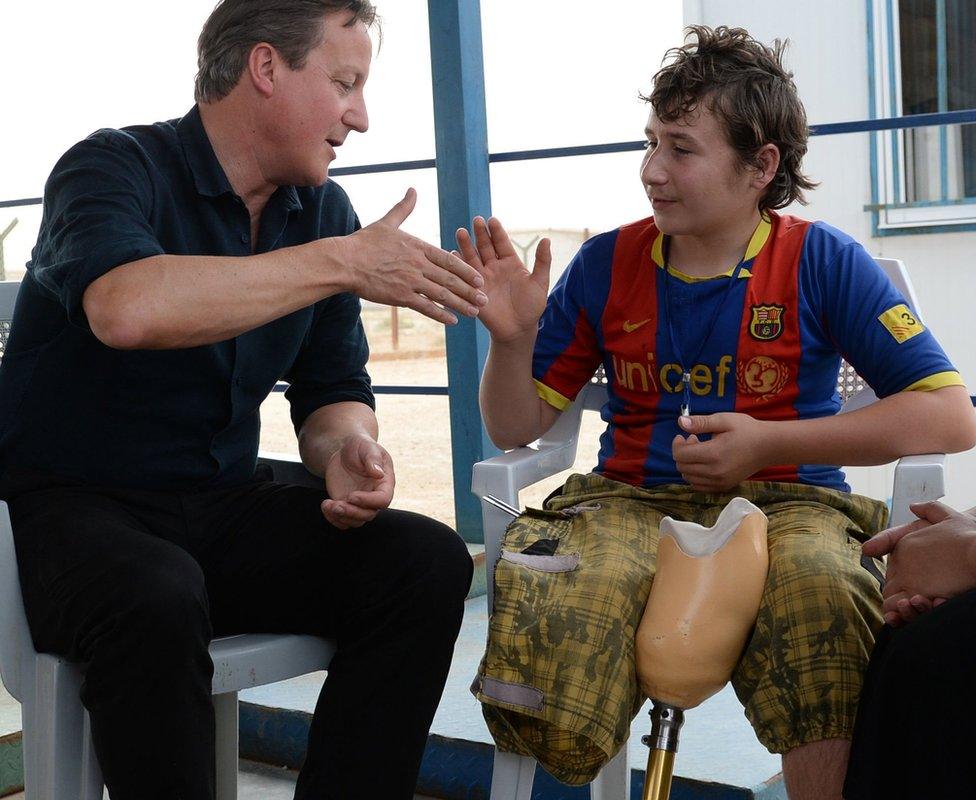
He spoke to 15-year-old Malik, who lost a leg after a barrel bomb was dropped from a plane while he played football with friends in Syria
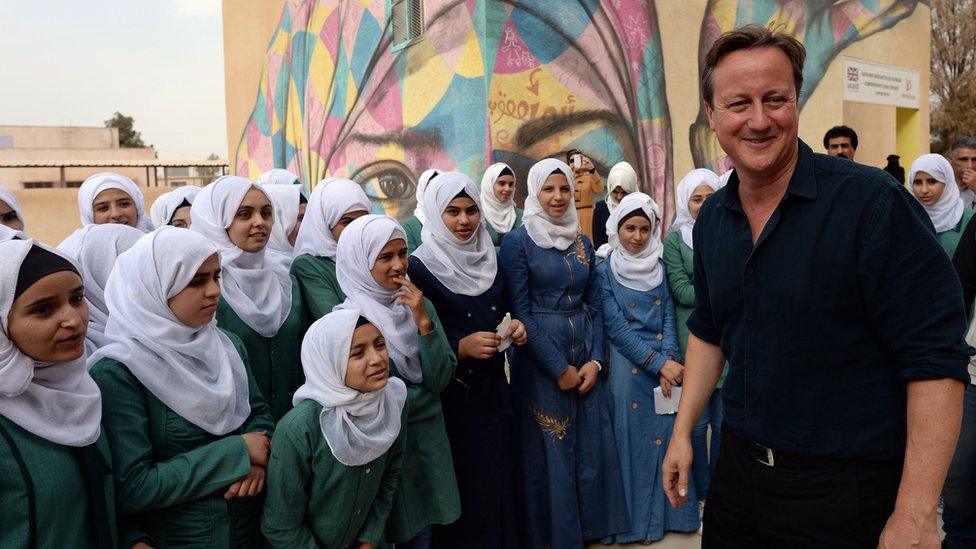
The prime minister also visited a girls' school in Jordan, which is receiving funding from the UK government
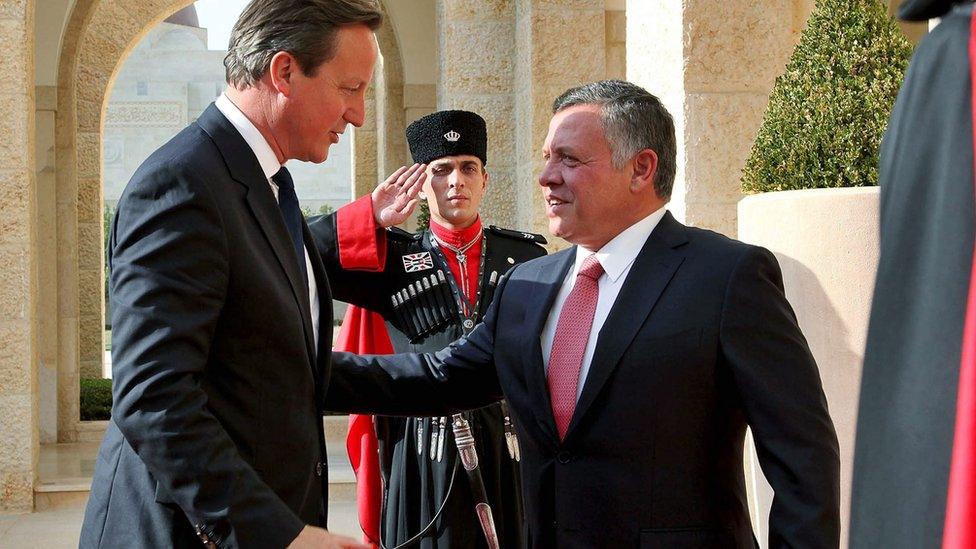
Mr Cameron met Jordan's King Abdullah, who wanted to "commend the role" Britain was playing in addressing the refugee crisis in his country
- Published14 September 2015
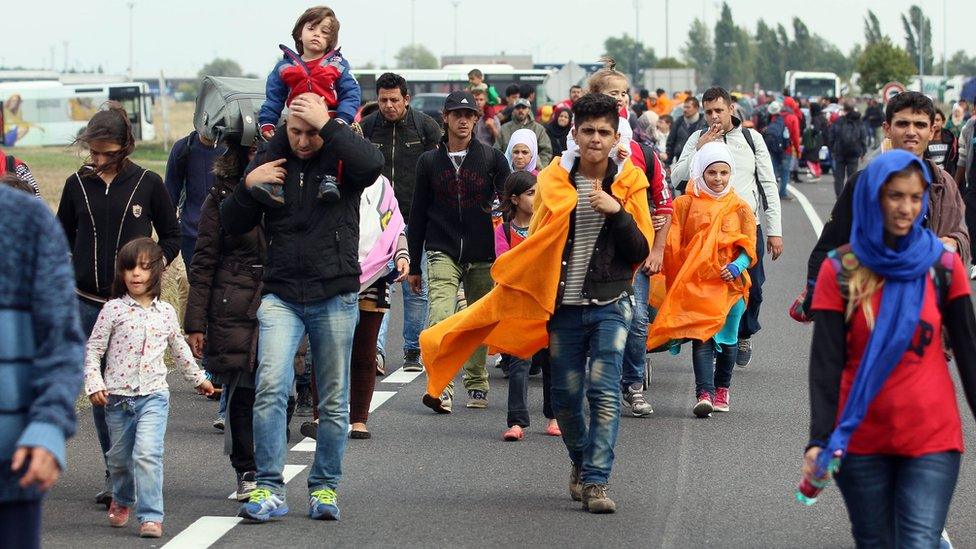
- Published14 September 2015
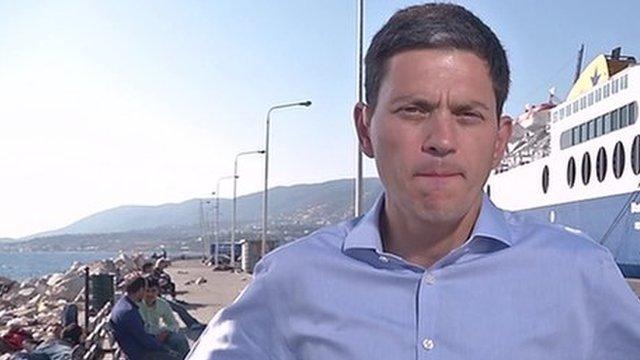
- Published14 September 2015
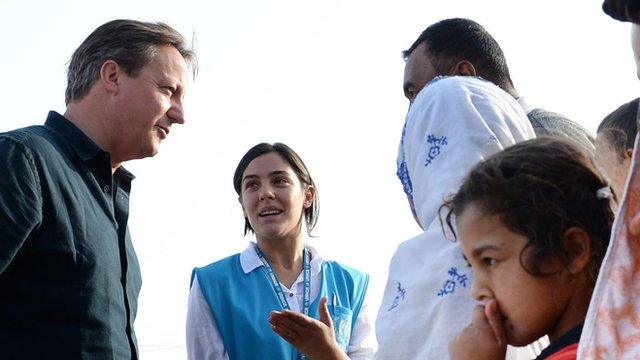
- Published13 September 2015
- Published4 March 2016
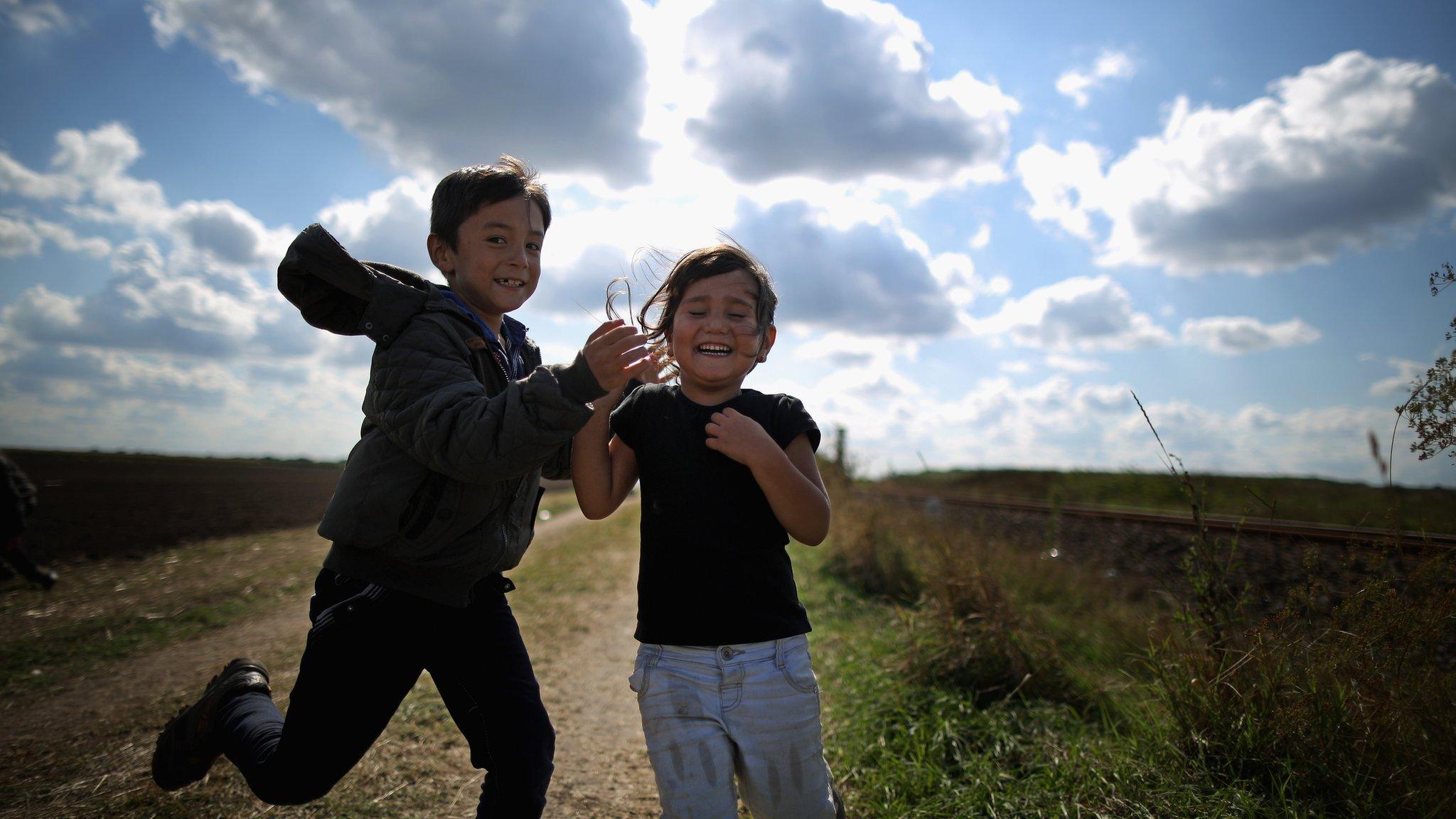
- Published13 May 2015
